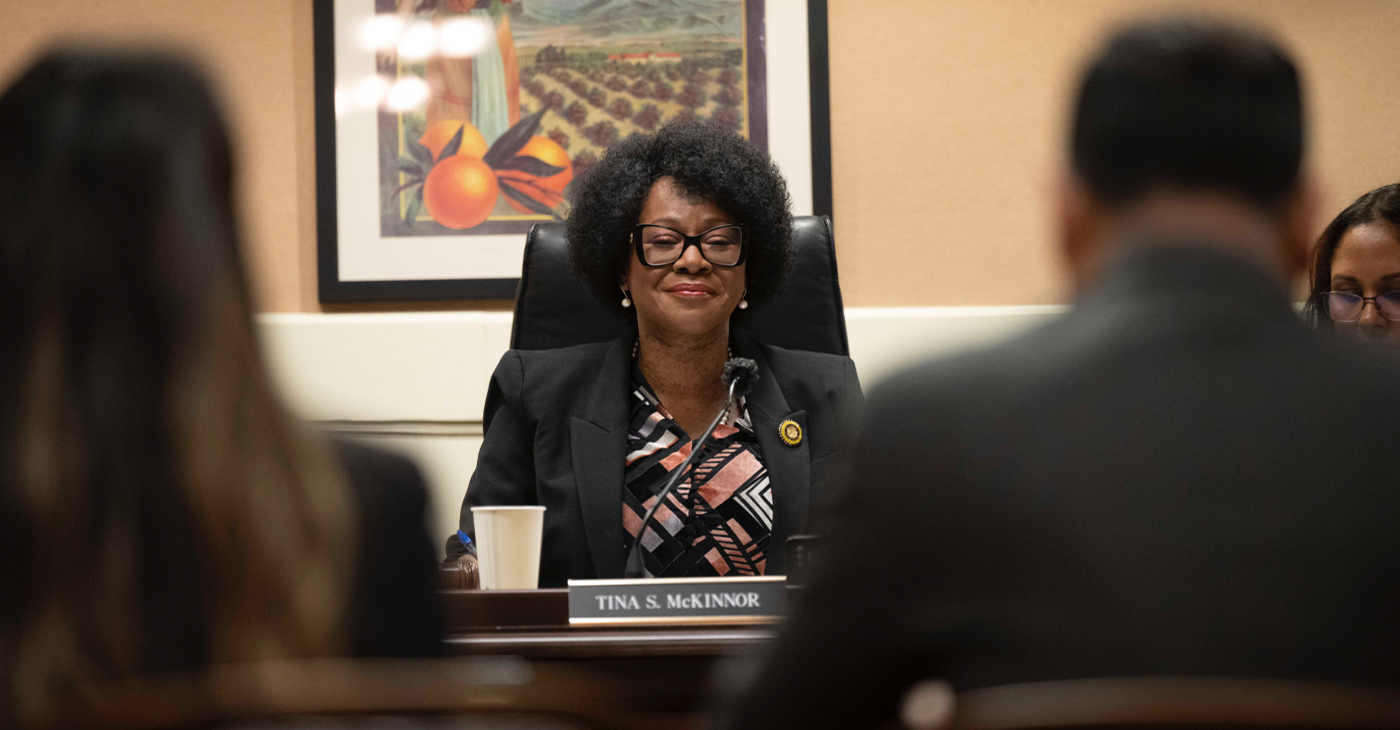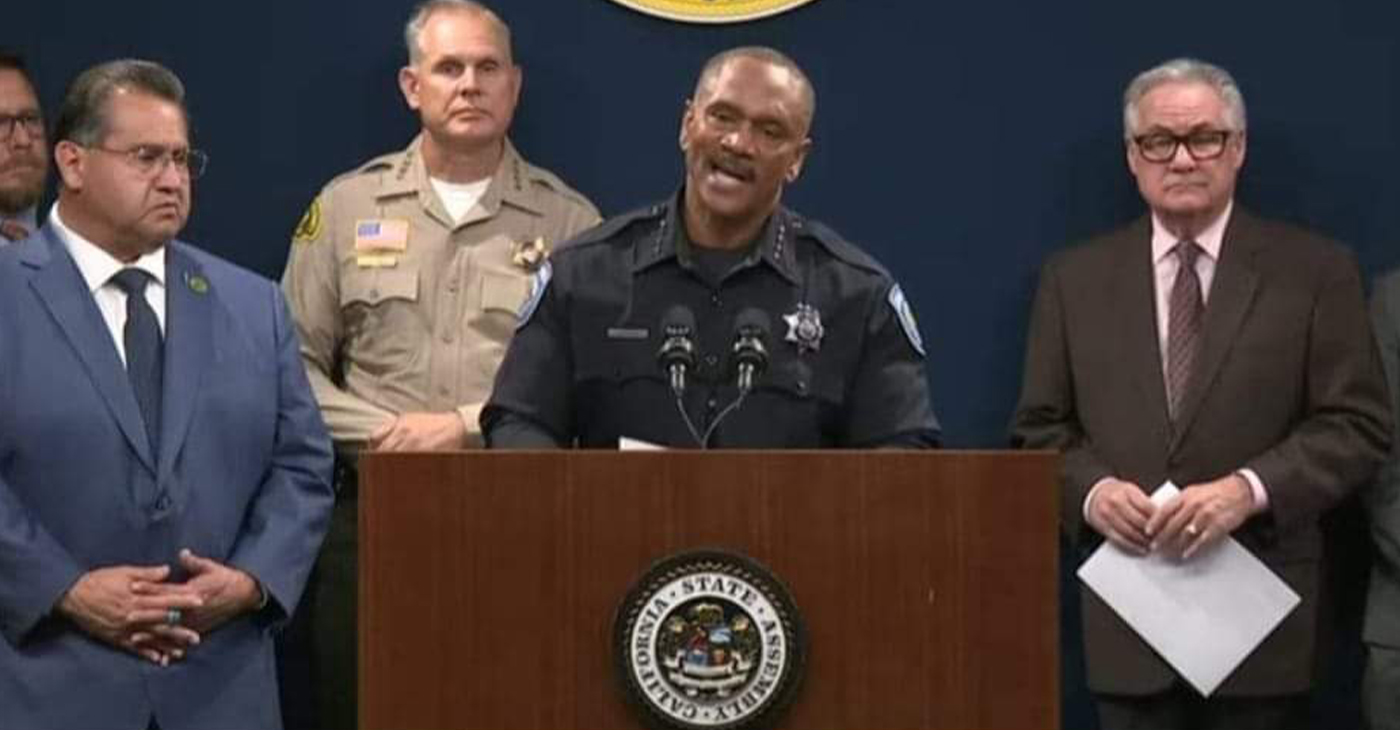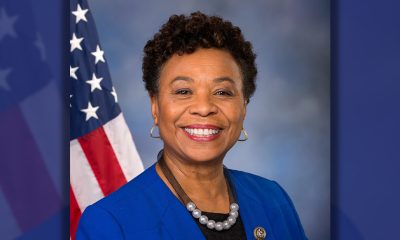California Black Media
California Legislature Fails to Pass Concealed Firearm Law on a Technicality
As gun violence plagues the country, the tug-of-war between gun rights and gun regulations on a local and national level will likely continue. Although California has some of the toughest gun laws in the country, the Legislature has yet to find a solution for concealed carry permits.

By Maxim Elramsisy | California Black Media
On the last night of this year’s legislative session last week, the State Assembly rejected Senate Bill (SB) 918, authored by state Sen. Anthony Portantino (D-La Cañada Flintridge). The bill — written to strengthen restrictions on concealed firearm permits — was one of several bills the Legislature did not approve during the tension-filled finale to a session marked by pointed debate among members of the Assembly’s Democratic majority.
Before the final vote, supporters of the legislation added an Urgency amendment so it could go into effect immediately — instead of Jan. 1, 2023, when bills passed during the current legislative session take effect.
As an Urgency Measure, SB 918 required 54 votes in the Assembly to pass, rather than the usual 41. The bill received 53 votes which is more than enough votes needed to reach the Governor’s desk had the urgency amendment not been added.
Last June, the Supreme Court of the United States ruled in New York State Rifle & Pistol Association v. Bruen that “may carry” laws giving states discretionary authority to reject concealed carry permits violated the Second Amendment. The decision rendered California’s law requiring applicants to show “good cause,” or a justifiable reason for needing such a permit unconstitutional.
In his opinion on the case, Justice Clarence Thomas, wrote that states could still prohibit guns in “sensitive places.” Chief Justice John Roberts, joined by Justice Brett Kavanaugh, wrote in a concurring opinion that the ruling did not affect “shall issue” laws requiring objective licensing requirements such as “fingerprinting, a background check, a mental health records check, and training in firearms handling, and in laws regarding use of force, among other possible requirements.”
SB 918 complies with the Supreme Court ruling by designating courts, places of worship, zones around schools, hospitals, public parks, libraries, airports, public transportation and bars as sensitive places. The bill requires authorities to review publicly available statements including social media to assess whether applicants present a danger to the public.
Applicants would be required to submit to in-person interviews to ensure they are “qualified,” and licensing officials will be required to interview at least three-character references. The state would also give licensing officials, usually a sheriff’s office, greater ability to revoke a license.
Initially, leaders believed that the measure had enough support to pass with an urgency amendment allowing it to go into effect this month. After the bill passed the Senate with a super majority (2/3) of the votes, it failed to gain a super majority vote in the State Assembly. Seven Democratic Assemblymembers voted against the bill or abstained from voting.
Notably, two Democratic members, Adam Gray (D-Merced) and Rudy Salas (D-Bakersfield) who are running for Congress in swing Central Valley districts may have felt the possibility of a political backlash by supporting gun control measures. Retiring Assemblymember Patrick O’Donnell (D-Long Beach), voted against the measure, though he was expected to support it.
“I’m very disappointed in the outcome,” the bill’s author, Portantino, told California Black Media. “But for one assembly member who switched their vote from aye to no, we would have had the 54 votes. I plan on reintroducing the bill on Dec. 5. I’ve already spoken to the governor and the Attorney General.”
If it had passed, the bill was likely to face legal challenges because many critics believe that it is too restrictive. The requirement of interviews and character references are points of contention for gun rights groups.
For Gov. Gavin Newsom, prioritizing gun control measures is still a leading priority in this legislative term, responding to an uptick of gun violence across the country. As of Sept. 2, the Gun Violence Archive reports 450 mass shootings in 2022, compared to 417 in all of 2019.
“California has the toughest gun safety laws in the nation, but none of us can afford to be complacent in tackling the gun violence crisis ravaging our country,” said Newsom. “These new measures will help keep children safe at school, keep guns out of the hands of dangerous people and responsibly regulate the sale of firearms in our communities.”
Though defeated in this attempt to regulate concealed firearms, Newsom has a number of notable legislative victories, including AB 2571, which restricts the marketing of firearms to children and AB 1594, which strips gun manufacturers of some legal protections when their products are used to commit acts of violence. SB 1327 and AB 1621 target ghost guns by restricting their manufacture, transportation and sale and close the loophole that allowed sale of incomplete and unserialized “firearm precursors.”
As gun violence plagues the country, the tug-of-war between gun rights and gun regulations on a local and national level will likely continue. Although California has some of the toughest gun laws in the country, the Legislature has yet to find a solution for concealed carry permits.
“Together, all of the gun laws that we passed make California safer,” Portantino said, “though not having a CCW (concealed weapons permit) consistent with the Supreme Court decision hurts California, which is why I’m committed to bringing it back on Dec. 5.”
Business
Black Business Summit Focuses on Equity, Access and Data
The California African American Chamber of Commerce hosted its second annual “State of the California African American Economy Summit,” with the aim of bolstering Black economic influence through education and fellowship. Held Jan. 24 to Jan. 25 at the Westin Los Angeles Airport Hotel, the convention brought together some of the most influential Black business leaders, policy makers and economic thinkers in the state. The discussions focused on a wide range of economic topics pertinent to California’s African American business community, including policy, government contracts, and equity, and more.

By Solomon O. Smith, California Black Media
The California African American Chamber of Commerce hosted its second annual “State of the California African American Economy Summit,” with the aim of bolstering Black economic influence through education and fellowship.
Held Jan. 24 to Jan. 25 at the Westin Los Angeles Airport Hotel, the convention brought together some of the most influential Black business leaders, policy makers and economic thinkers in the state. The discussions focused on a wide range of economic topics pertinent to California’s African American business community, including policy, government contracts, and equity, and more.
Toks Omishakin, Secretary of the California State Transportation Agency (CALSTA) was a guest at the event. He told attendees about his department’s efforts to increase access for Black business owners.
“One thing I’m taking away from this for sure is we’re going to have to do a better job of connecting through your chambers of all these opportunities of billions of dollars that are coming down the pike. I’m honestly disappointed that people don’t know, so we’ll do better,” said Omishakin.
Lueathel Seawood, the president of the African American Chamber of Commerce of San Joaquin County, expressed frustration with obtaining federal contracts for small businesses, and completing the process. She observed that once a small business was certified as DBE, a Disadvantaged Business Enterprises, there was little help getting to the next step.
Omishakin admitted there is more work to be done to help them complete the process and include them in upcoming projects. However, the high-speed rail system expansion by the California High-Speed Rail Authority has set a goal of 30% participation from small businesses — only 10 percent is set aside for DBE.
The importance of Diversity, Equity and Inclusion (DEI) in economics was reinforced during the “State of the California Economy” talk led by author and economist Julianne Malveaux, and Anthony Asadullah Samad, Executive Director of the Mervyn Dymally African American Political and Economic Institute (MDAAPEI) at California State University, Dominguez Hills.
Assaults on DEI disproportionately affect women of color and Black women, according to Malveaux. When asked what role the loss of DEI might serve in economics, she suggested a more sinister purpose.
“The genesis of all this is anti-blackness. So, your question about how this fits into the economy is economic exclusion, that essentially has been promoted as public policy,” said Malveaux.
The most anticipated speaker at the event was Janice Bryant Howroyd known affectionately to her peers as “JBH.” She is one of the first Black women to run and own a multi-billion-dollar company. Her company ActOne Group, is one of the largest, and most recognized, hiring, staffing and human resources firms in the world. She is the author of “Acting Up” and has a profile on Forbes.
Chairman of the board of directors of the California African American Chamber of Commerce, Timothy Alan Simon, a lawyer and the first Black Appointments Secretary in the Office of the Governor of California, moderated. They discussed the state of Black entrepreneurship in the country and Howroyd gave advice to other business owners.
“We look to inspire and educate,” said Howroyd. “Inspiration is great but when I’ve got people’s attention, I want to teach them something.”
California Black Media
Asm. Tina McKinnor Elected Chair of L.A. Delegation to Legislature
On Jan. 24, the members of the Los Angeles County Delegation (LACD) to the California Legislature elected Assemblymember Tina McKinnor (D-Inglewood) as the group’s chair. McKinnor, who is a member of the California Legislative Black Caucus, will lead the 39-member body, which is comprised of 15 State Senators and 24 State Assemblymembers representing various areas of Los Angeles County.

By California Black Media
On Jan. 24, the members of the Los Angeles County Delegation (LACD) to the California Legislature elected Assemblymember Tina McKinnor (D-Inglewood) as the group’s chair.
McKinnor, who is a member of the California Legislative Black Caucus, will lead the 39-member body, which is comprised of 15 State Senators and 24 State Assemblymembers representing various areas of Los Angeles County.
As LACD chair, McKinnor succeeds Assemblymember Luz Rivas (D-San Fernando Valley).
“I am grateful for the trust legislators from the Los Angeles County Delegation have placed in me to serve as its next Chair,” said McKinnor in a statement.
LACD Vice Chair, Sen. Maria Elena Durazo (D-Los Angeles), said the body, which collectively represents about 10 million people in California’s populous county, is the largest, bi-partisan, and most diverse delegation in the California Legislature.
“Heading into a challenging budget year, the Delegation, and I will be intensely focused on making sure communities throughout Los Angeles County receive the services they need and that we continue our historic investments to address homelessness and the housing affordability crisis in Los Angeles County,” Durazo added.
McKinnor thanked Rivas for her stewardship of the LACD during the last legislative session.
“The Delegation and I are grateful to outgoing Chair, Assemblymember Luz Rivas, for her incredible leadership to the Legislature, the state, and especially the people of Los Angeles County,” said McKinnor.
California Black Media
Anti-Theft Bill with Jail-Time Requirement Gets Wide Ranging Support
Fed up with the alarming frequency of retail theft across California, including smash and grabs, a diverse group of business leaders, law enforcement officials, policymakers and public safety advocates joined their efforts in Sacramento on Jan. 24. Their purpose: to increase public support for Assembly Bill (AB) 1772, a bill that would make jail time mandatory for repeat theft offenders.

By California Black Media
Fed up with the alarming frequency of retail theft across California, including smash and grabs, a diverse group of business leaders, law enforcement officials, policymakers and public safety advocates joined their efforts in Sacramento on Jan. 24.
Their purpose: to increase public support for Assembly Bill (AB) 1772, a bill that would make jail time mandatory for repeat theft offenders.
Co-authored by Assemblymembers James C. Ramos (D-San Bernardino), Avelino Valencia (D-Anaheim) and Devon Mathis (R-Tulare), AB 1772 would require jail time “of one to three years for theft crimes depending upon the circumstances.
“Offenses would include grand theft, theft from an elder or dependent adult, theft or unauthorized use of a vehicle, burglary, carjacking, robbery, receiving stolen property, shoplifting or mail theft,” the bill language reads.
Ramos said the need to act is urgent.
“It’s time for us to reverse the spikes in theft crimes since the pandemic. Our law enforcement members and district attorneys need additional tools such as AB 1772. We must reverse the trend before the problem grows worse. Last year I requested a state audit of the impact of Prop 47 on Riverside and San Bernardino counties,” said Ramos.
Prop 47 is the California initiative, approved by voters in 2014, that reclassified some felonies to misdemeanors and raised the minimum amount for most misdemeanor thefts from $400 to $950.
According to a Public Policy Institute of California (PPIC) report, the rate of occurrence of petty crimes like shoplifting and commercial burglaries have increased by double digits over the last four years.
In Orange County alone, commercial burglaries have spiked by 54%.
“Our communities are experiencing an increase in retail crime and deserve appropriate action from their legislators,” Valencia said.
San Bernardino County Sheriff Shannon Dicus thanked Ramos.
“This bill, designed to impose stricter penalties on serial retail theft suspects, responds urgently to the escalating consequences of shoplifting and related crimes on our communities,” he said.
AB 1772 supporters who spoke at the gathering included Sacramento Sheriff Jim Cooper and San Bernardino Chief of Police Darren Goodman. Listed as supporters are the California State Sheriff’s Association, City of Riverside Police Chief Larry Gonzalez and Redlands Chamber of Commerce.
-

 Activism4 weeks ago
Activism4 weeks agoOakland Post: Week of March 27 – April 2, 2024
-

 #NNPA BlackPress4 weeks ago
#NNPA BlackPress4 weeks agoCOMMENTARY: D.C. Crime Bill Fails to Address Root Causes of Violence and Incarceration
-

 #NNPA BlackPress4 weeks ago
#NNPA BlackPress4 weeks agoMayor, City Council President React to May 31 Closing of Birmingham-Southern College
-

 #NNPA BlackPress4 weeks ago
#NNPA BlackPress4 weeks agoBeloved Actor and Activist Louis Cameron Gossett Jr. Dies at 87
-

 Community1 week ago
Community1 week agoFinancial Assistance Bill for Descendants of Enslaved Persons to Help Them Purchase, Own, or Maintain a Home
-

 Activism3 weeks ago
Activism3 weeks agoOakland Post: Week of April 3 – 6, 2024
-

 Business1 week ago
Business1 week agoV.P. Kamala Harris: Americans With Criminal Records Will Soon Be Eligible for SBA Loans
-

 Activism2 weeks ago
Activism2 weeks agoOakland Post: Week of April 10 – 16, 2024






















































